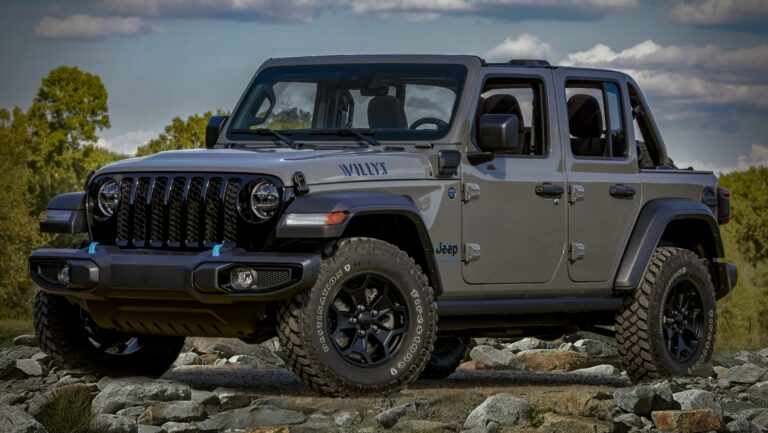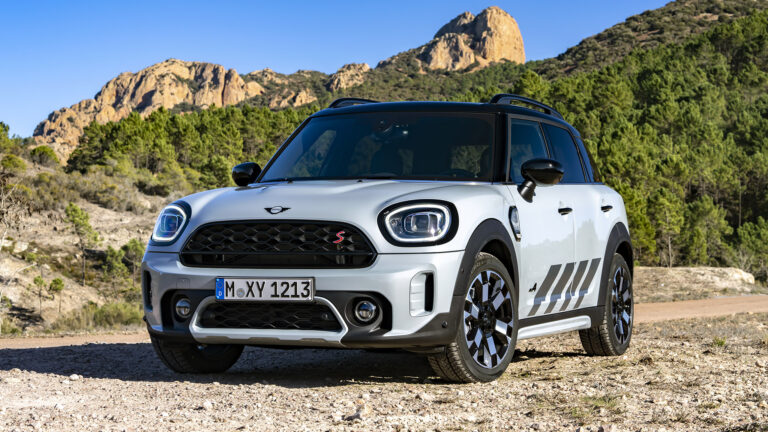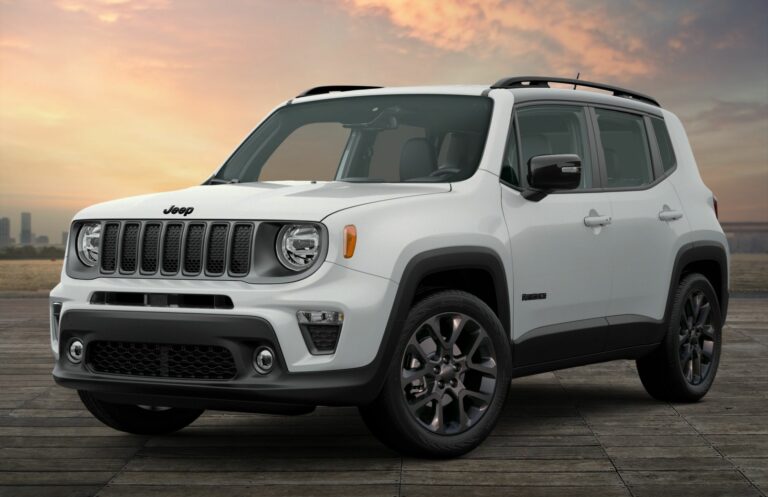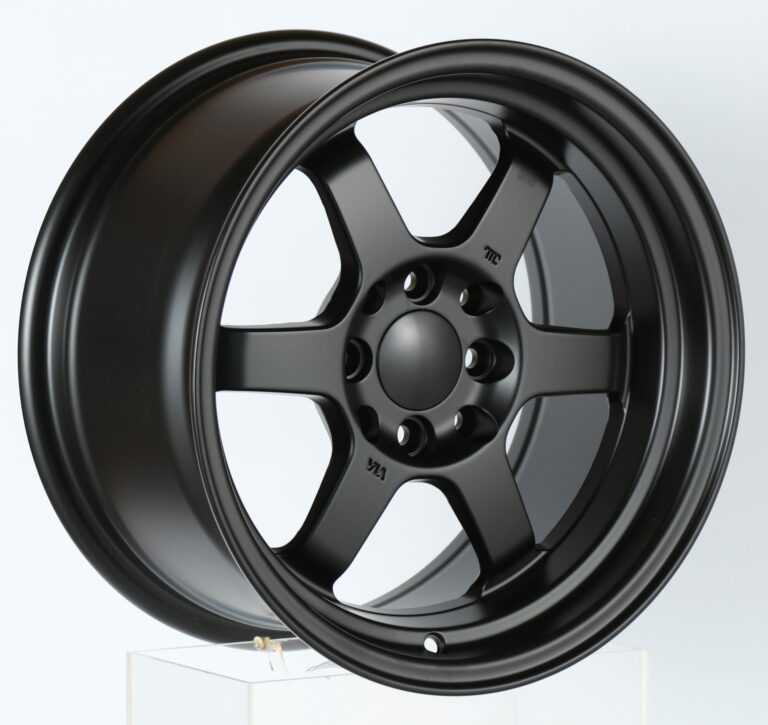Full Size Jeep For Sale: Your Comprehensive Guide to Acquiring an Automotive Icon
Full Size Jeep For Sale: Your Comprehensive Guide to Acquiring an Automotive Icon /jeeps.truckstrend.com
Introduction: The Enduring Allure of the Full Size Jeep
In the vast landscape of automotive history, few vehicles command the enduring respect and passionate following quite like the Full Size Jeep (FSJ). From the rugged utility of the J-series trucks to the pioneering luxury of the Grand Wagoneer, these iconic machines carved out a unique niche, blending unparalleled capability with a distinctive, timeless style. When we talk about "Full Size Jeep For Sale," we’re not just discussing a used vehicle; we’re referring to an opportunity to own a piece of American automotive heritage, a vehicle that represents a bygone era of robust engineering and unapologetic design.
Full Size Jeep For Sale: Your Comprehensive Guide to Acquiring an Automotive Icon
The FSJ lineup, predominantly manufactured by Kaiser-Jeep and later American Motors Corporation (AMC) from 1963 to 1991, predates the modern SUV craze, effectively inventing the luxury sport utility vehicle with the original Wagoneer. Their importance lies not only in their historical significance but also in their continued relevance today. Owners and enthusiasts are drawn to their simplicity, their sturdy body-on-frame construction, their surprising comfort, and their undeniable presence. Whether you’re a seasoned collector, an off-road enthusiast, or simply someone yearning for a vehicle with character and soul, navigating the market for a Full Size Jeep For Sale requires insight and preparation. This comprehensive guide will equip you with the knowledge needed to embark on your FSJ journey confidently.
What Defines a Full-Size Jeep? A Look at the Lineup
The term "Full Size Jeep" broadly refers to the SJ platform vehicles. Understanding the key models within this family is crucial when looking for a Full Size Jeep For Sale:
- Jeep Wagoneer (SJ) (1963-1991): The progenitor of the luxury SUV. Early models were utilitarian, but by the 1970s, it evolved into a more comfortable family vehicle.
- Jeep Cherokee (SJ) (1974-1983): A sportier, two-door (and later four-door) variant of the Wagoneer, often seen as a competitor to the Ford Bronco and Chevrolet K5 Blazer. It offered a more aggressive stance and appealed to a younger demographic.
- Jeep Grand Wagoneer (1984-1991): The pinnacle of the FSJ line. While technically still an SJ Wagoneer, AMC rebranded the top-tier model as the "Grand Wagoneer" in 1984 to emphasize its luxury features, including standard woodgrain paneling, leather interiors, power amenities, and chrome accents. These are arguably the most sought-after FSJs today.
- Jeep J-Series Pickups (Gladiator, Honcho, etc.) (1963-1988): Based on the same robust SJ chassis, these full-size trucks offered unparalleled utility. Models like the Gladiator and later the J10, J20, and specialized Honcho and Golden Eagle editions are highly collectible for their rugged looks and practicality.

Common characteristics shared by all FSJs include their robust body-on-frame construction, solid axles front and rear, and a range of AMC V8 engines (most commonly the 360 cu in) or inline-sixes. Their distinct styling, particularly the iconic vertical-slat grille and the Grand Wagoneer’s faux wood paneling, makes them instantly recognizable.
Why Buy a Full-Size Jeep? The Allure of a Classic
The decision to seek out a Full Size Jeep For Sale is often driven by a blend of practical considerations and pure passion:
- Timeless Style and Nostalgia: The FSJ, especially the Grand Wagoneer, is an undisputed design icon. Its boxy lines and distinctive details evoke a sense of classic Americana. For many, it’s a vehicle from their childhood or a symbol of a simpler time, making it a powerful nostalgia trigger.
- Robust Durability: These vehicles were built to last. Their heavy-duty components and simple mechanicals mean they can withstand significant mileage and abuse, often outliving more complex modern vehicles if properly maintained.
- Exceptional Off-Road Capability: Beneath the luxury veneer, the FSJ is a true Jeep. With solid axles, ample ground clearance, and capable 4×4 systems (like the legendary Quadratrac or later Command-Trac/Selec-Trac), they remain highly capable off-roaders.
- Investment Potential: Particularly for well-preserved or expertly restored Grand Wagoneers, values have been steadily appreciating. While not a guaranteed financial investment, a smart purchase can hold or even increase in value over time, unlike most modern vehicles.
- Unique Driving Experience: Driving an FSJ is an experience. It’s not about speed or pinpoint handling; it’s about a commanding view, a comfortable ride, and the unique rumble of an American V8. They stand out in a sea of generic modern SUVs.
- Strong Community and Aftermarket Support: A vibrant community of FSJ enthusiasts exists, offering invaluable knowledge, support, and friendship. Furthermore, the aftermarket for parts and upgrades is surprisingly robust, making ownership more manageable.


Navigating the Market: Where to Find Your FSJ
The hunt for a Full Size Jeep For Sale can be an adventure in itself. Knowing where to look is half the battle:
- Online Auction Sites: Platforms like Bring a Trailer (BaT) and eBay Motors often feature high-quality or unique FSJs. BaT, in particular, is known for well-documented, higher-end examples.
- Classic Car Marketplaces: Websites such as Hemmings.com, ClassicCars.com, and Autotrader Classics specialize in vintage vehicles and are excellent resources.
- Dedicated FSJ Forums and Social Media Groups: The International Full Size Jeep Association (IFSJA.org) forum and various Facebook groups are goldmines. Sellers often post their vehicles directly to these communities, and you can tap into the collective knowledge of experienced owners.
- Local Classifieds and Word of Mouth: Don’t underestimate the power of local listings (Craigslist, Facebook Marketplace) or simply asking around. Many gems are found in barns or driveways, not yet advertised widely.
- Specialized Dealers/Restorers: A growing number of businesses specialize in FSJ restoration and sales. While prices will be higher, these vehicles often come fully serviced or restored, offering a more turnkey solution.
- Auctions: Local and national collector car auctions can be a source, but thorough pre-inspection is critical as you often buy "as is."
Key Considerations Before Buying: A Pre-Purchase Checklist
Before committing to a Full Size Jeep For Sale, a meticulous inspection and careful consideration are paramount. These vehicles are decades old, and even the best examples will have quirks.
- Rust: The Number One Enemy: FSJs are notorious for rust. Inspect common problem areas thoroughly: rocker panels, lower fenders, tailgate (especially around the window), floorboards, frame rails, inner fenders, and the spare tire well. Surface rust is manageable, but extensive structural rust can be a deal-breaker or require significant investment.
- Mechanical Condition:
- Engine: Most commonly the AMC 360 V8. Check for excessive smoke (blue for oil, white for coolant), strange noises (knocks, ticks), oil leaks, and proper idle. Ask about recent tune-ups, carburetor condition (many benefit from EFI conversions), and cooling system health.
- Transmission: Automatic transmissions (TorqueFlite 727 or TH400) are generally robust but check for smooth shifts, fluid leaks, and proper engagement.
- Transfer Case: Early Quadratrac (full-time 4WD) or later NP208/NP229 (part-time/full-time). Ensure 4WD engages and disengages smoothly.
- Axles: Check for differential leaks and unusual noises.
- Brakes and Steering: Test for pull, shudder, and responsiveness. Power steering pumps can leak.
- Electrical System: FSJs are known for their electrical quirks. Test all lights, gauges, power windows, power locks, radio, and especially the power tailgate window motor (a common failure point).
- Interior Condition: The Grand Wagoneer’s signature woodgrain trim, leather seats, and headliner are key indicators of care. Check for rips, tears, cracks, and water damage. Headliners often sag.
- Documentation: Service records, maintenance history, and a clear title are invaluable. These provide insight into the vehicle’s past care and legitimacy.
- Common FSJ Specific Issues: Beyond general wear, be aware of specific FSJ tendencies: vacuum leaks affecting engine performance, worn suspension components leading to a "saggy" ride, and dry-rotted weatherstripping allowing leaks.
Understanding FSJ Condition Tiers and Pricing
The price of a Full Size Jeep For Sale varies wildly depending on its condition, rarity, and the specific model. Generally, Grand Wagoneers command the highest prices. Here’s a breakdown of typical condition tiers:
| Condition Tier | Description | Estimated Price Range (USD) |
|---|---|---|
| Project/Parts Vehicle | Non-running, significant rust, major mechanical issues. Primarily for parts or a full frame-off restoration. | $1,000 – $5,000 |
| Driver Quality | Runs and drives, but needs significant mechanical or cosmetic work. Functional but far from perfect. May have rust. | $5,000 – $15,000 |
| Good Driver/Survivor | Well-maintained, mostly original, minimal rust, runs reliably. May have minor flaws but is presentable and roadworthy. | $15,000 – $30,000 |
| Restored/Excellent | Recently restored or exceptionally well-preserved original. Near-flawless paint, interior, and mechanicals. Ready to enjoy with pride. | $30,000 – $60,000+ |
| Show Quality/Concours | Meticulously restored to original factory specifications or better. Pristine condition, often trailer-queens or top-tier show vehicles. | $60,000 – $100,000+ |
Note: These are broad estimates. Prices can fluctuate based on specific model year, mileage, options (e.g., power seats, sunroof), and market demand.
Tips for a Successful FSJ Purchase
- Set a Realistic Budget: Beyond the purchase price, factor in immediate repairs, deferred maintenance, and potential restoration costs. Even a "good" FSJ will likely need some attention.
- Do Your Homework: Research the specific model year you’re interested in. Understand its common issues and unique features.
- Get a Pre-Purchase Inspection (PPI): If possible, have a reputable mechanic familiar with vintage vehicles (especially Jeeps) inspect the vehicle thoroughly before purchase. This is crucial for remote purchases.
- Don’t Rush: The right Full Size Jeep For Sale will come along. Be patient and disciplined in your search.
- Join the Community: Engage with FSJ forums and groups. They are invaluable resources for advice, finding parts, and even locating vehicles for sale.
- Factor in Transport: If buying out of state, get quotes for enclosed or open-trailer shipping.
Potential Challenges and Solutions
Owning an FSJ is incredibly rewarding, but it’s not without its challenges. Being prepared can make the experience much smoother.
- Parts Availability: While common mechanical components are readily available, specific trim pieces, interior parts (especially woodgrain), and body panels can be scarce.
- Solution: Specialized vendors (e.g., BJ’s Off-Road, Team Grand Wagoneer), online forums (classifieds, parts sections), junkyard diving, and even 3D printing for small, non-structural components.
- Fuel Economy: FSJs, with their heavy curb weight and V8 engines, are not fuel-efficient. Expect single-digit to low-teen MPG.
- Solution: Accept it as part of the classic car experience. Some owners opt for modern fuel injection (EFI) conversions, which can improve driveability and slightly boost economy.
- Maintenance: These are older vehicles that require more attention than a modern car. Regular fluid checks, lubrication, and proactive maintenance are key.
- Solution: Learn basic DIY maintenance, or find a trusted mechanic who specializes in vintage American vehicles. The FSJ community is also a great source for technical advice.
- Rust Mitigation: The battle against rust is ongoing.
- Solution: Address any existing rust properly, keep the vehicle clean and dry, consider undercoating or rust-preventative treatments, especially if you live in a salt-prone area.
Full Size Jeep For Sale: Price Table
| Model | Year Range | Condition: Project/Parts | Condition: Driver Quality | Condition: Good Driver/Survivor | Condition: Restored/Excellent | Condition: Show Quality/Concours |
|---|---|---|---|---|---|---|
| Jeep Wagoneer (SJ) | 1963-1991 | $1,000 – $4,000 | $4,000 – $12,000 | $12,000 – $25,000 | $25,000 – $45,000 | $45,000+ |
| Jeep Cherokee (SJ) | 1974-1983 | $1,000 – $4,000 | $4,000 – $12,000 | $12,000 – $25,000 | $25,000 – $45,000 | $45,000+ |
| Jeep J-Series Truck | 1963-1988 | $1,000 – $5,000 | $5,000 – $15,000 | $15,000 – $30,000 | $30,000 – $50,000 | $50,000+ |
| Jeep Grand Wagoneer | 1984-1991 | $2,000 – $7,000 | $7,000 – $20,000 | $20,000 – $40,000 | $40,000 – $75,000 | $75,000 – $100,000+ |
Prices are estimates and can vary based on originality, mileage, specific options, modifications, geographic location, and current market trends. The "Show Quality" tier for Grand Wagoneers can sometimes exceed $100,000 for truly exceptional examples.
Frequently Asked Questions (FAQ) about Full Size Jeeps For Sale
Q1: Are Full Size Jeeps reliable for daily driving?
A1: While they can be, they require consistent and proactive maintenance due to their age. They are not as "set it and forget it" as modern vehicles. Be prepared for lower fuel economy and classic car quirks.
Q2: What’s the best engine for an FSJ?
A2: The AMC 360 V8 is the most common and generally well-regarded for its balance of power and parts availability. The AMC 401 V8 is more powerful but rarer. The inline-six engines are known for their extreme durability.
Q3: Is rust always a major issue with FSJs?
A3: Rust is a very common issue, especially in areas where roads are salted. A thorough pre-purchase inspection for rust, particularly in structural areas, is absolutely critical. Some rust is manageable, but extensive frame rust can make a vehicle a money pit.
Q4: Where can I find parts for my Full Size Jeep?
A4: Several specialized vendors like BJ’s Off-Road, Team Grand Wagoneer, and Summit Racing carry many common parts. General auto parts stores (like RockAuto) also stock mechanical components. Online forums and social media groups are great for hard-to-find trim pieces.
Q5: What’s the main difference between a Wagoneer and a Grand Wagoneer?
A5: From 1984-1991, "Grand Wagoneer" was the top-tier luxury trim of the Wagoneer line. It came standard with features like the iconic faux wood paneling, leather seats, power accessories, and typically a higher level of interior refinement compared to the base Wagoneer or Cherokee models.
Q6: Are FSJs expensive to insure?
A6: Often, no. Many insurance companies offer classic car insurance policies that can be surprisingly affordable, especially if the vehicle is not your primary daily driver and meets certain criteria (e.g., stored securely, limited mileage).
Q7: Can I convert an FSJ to fuel injection?
A7: Yes, many owners opt for aftermarket EFI conversions (e.g., from Holley Sniper, Edelbrock, FiTech). This can significantly improve cold starts, driveability, and potentially fuel economy, while eliminating carburetor issues.
Conclusion: More Than Just a Vehicle
The journey to acquire a Full Size Jeep For Sale is more than just a transaction; it’s an entry into a passionate community and the beginning of a unique ownership experience. These vehicles, whether a utilitarian J-truck or a luxurious Grand Wagoneer, represent a bygone era of automotive design and engineering. They are not merely transportation; they are statements, projects, and cherished members of the family.
While challenges like rust, maintenance, and parts sourcing exist, the rewards of owning an FSJ – the distinctive style, the robust capability, the connection to history, and the camaraderie of fellow enthusiasts – far outweigh them for the right buyer. By approaching your search with patience, knowledge, and a realistic understanding of what ownership entails, you can find the perfect Full Size Jeep For Sale that will provide years of enjoyment and turn heads wherever you go. Embrace the journey, and you’ll discover that owning an FSJ is not just about driving a classic; it’s about living a lifestyle.




